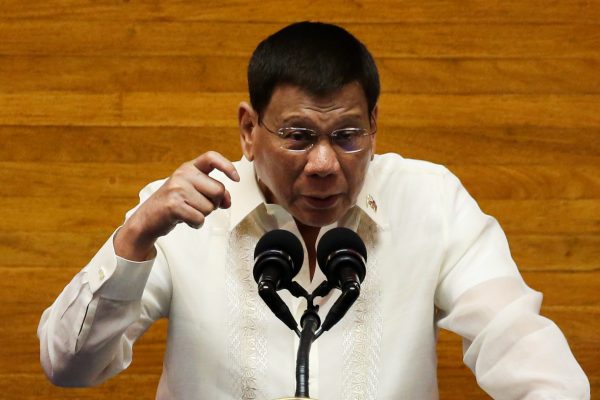But each silver lining has a cloud. Based on current polling, there’s every chance that one of Duterte’s allies will take over the presidency from him at the elections scheduled for May 2022. His daughter Sara remains the most popular candidate, followed closely by Bongbong Marcos, son of the former dictator Ferdinand. The most viable anti-Duterte liberals are all polling in the single digits.
The stakes in the election are still real, even if a turn back towards more liberal pre-Duterte politics doesn’t appear likely. The polls will be both a test and a determinant of whether Duterte’s core cabal of supporters are able to entrench their power under the leadership of a favoured successor.
Despite Philippine democracy’s myriad problems, elections are meaningful events in which voters have the agency and the power to arbitrate intra-elite contests for political power. For that reason, slowing the deterioration of the system depends not only on whether the 2022 polls see a Duterte proxy elected, but whether the conduct of the election is still marked by free and fair competition between the candidates. A level electoral playing field is the fundamental criterion that distinguishes even deeply flawed democracies, like the Philippines, India and Indonesia, from what political scientists call ‘competitive authoritarian’ regimes, like Singapore or pre-2018 Malaysia — where elections might be free and frequent, but not really fair.
That’s why it’s disturbing that one of the key pillars of political life in the Philippines — its traditionally vibrant and critical mass media — has been under such pressure in the Duterte era, as Danilo Arao writes in our lead article this week.
As part of his attempts to intimidate and punish opposition, Duterte and his allies in the Philippine Congress, regulators, police and the military have fostered a ‘climate of media repression’ that ‘sends a chilling message to journalists and media workers in the country that they should toe the administration line’, says Arao.
The country’s leading TV network, ABS-CBN, disappeared from the airwaves in July 2020 after the Duterte-controlled congress refused to renew its broadcasting licence — an echo of the Marcos regime’s attack on the same network in the 1970s. Violence against journalists is common, with the Philippines one of the most dangerous places in the world to practice journalism. Maria Ressa, the editor of the fearless online news site Rappler, has had her global stature confirmed by being awarded the Nobel Peace Prize; in her home country she has been the target of relentless legal harassment and intimidation from the administration.
A hallmark of the current global political era is the mass media’s supplanting the role of grassroots party and civic organisations in linking voters with politicians. This is particularly true of the Philippines, where the system has never been structured by parties but instead by interlocking alliances of local political machines. Presidents depend on the media — and especially TV — to reach past these machines to the grassroots. Because voters barely identify with parties, the impressions of individual presidential candidates they get via the media have a tremendous influence on their choices at the ballot box.
For these reasons, the domestication of the mass media as described by Arao has potentially serious implications for the fairness of electoral competition in 2022 if, for instance, outlets feel obliged to give favourable coverage of an administration-friendly candidate, or to limit coverage of their opponent. Given a crowded presidential field, it makes a difference in the context of a media-saturated political culture.
These dynamics are also in play to varying extents across Asia’s other big democracies. Indonesian President Joko Widodo has maintained popularity throughout the pandemic in part because he aggressively co-opted the tycoons who control Indonesia’s broadcast media; coverage of his government has become noticeably friendlier as a result. In India, there are deep worries that the ruling Bharatiya Janata Party is restricting the media’s ability to report critically on government policies.
Social media has subsequently become a haven for groups — some liberal, some not — who increasingly distrust the mainstream press. Governments are aware and cracking down on social media with a variety of tactics, typically under the cover of anti-‘misinformation’ or ‘fake news’ campaigns. In India and Indonesia this has meant using the legal system as a tool to target selected critics; in the Philippines, the government has simply made online spaces toxic by flooding social media with abuse and misinformation directed at opponents.
It’s difficult to identify what could arrest or reverse these trends against media freedom and online speech, given the deeply rooted domestic political forces and interests driving them. One thing liberal democratic governments can do is to recognise how and when their own efforts to more tightly regulate social media and crack down on foreign ‘interference’ — even if for good reasons — gives cover to illiberal governments to do these exact same things for bad reasons.
In some places, ‘misinformation’ means just that, but in the increasingly chilly media and free speech environments in the Philippines and across the region, it often means what the government doesn’t want voters to hear.
The EAF Editorial Board is located in the Crawford School of Public Policy, College of Asia and the Pacific, The Australian National University.

